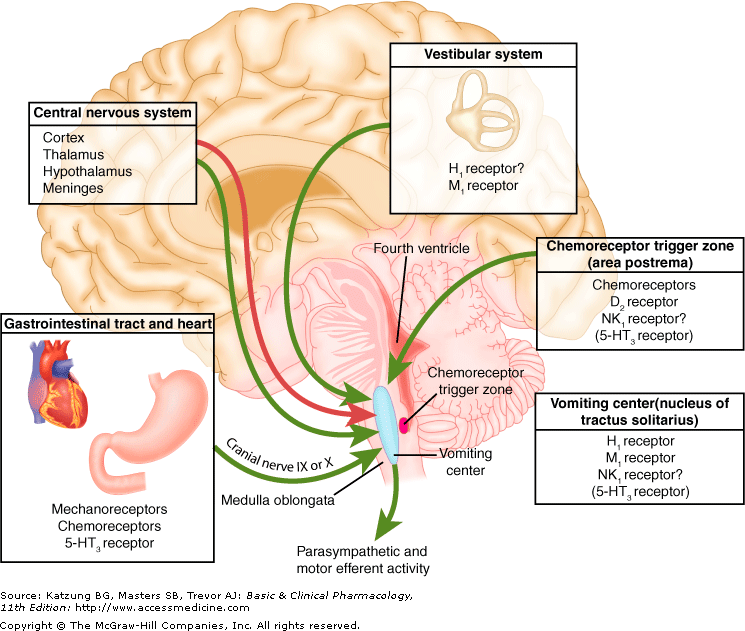NurseDude1966
Full Member
- Joined
- Feb 10, 2019
- Messages
- 53
- Reaction score
- 3
I am a nursing student and out of curiosity from treating patients during clinicals, I had a question about anti-emetics but was unable to find my specific question anywhere. As someone who really enjoys pharm I just wanted to know more
So I know that Promethazine which is often used for severe nausea/ vomiting is a Phenothiazine anti-emetic that is structurally related to other Phenothiazine antipsychotics that also have anti-emetic effects such as Thorazine. The primary mechanism of action that accounts for Promethazine's anti-emetic effects is antihistamine, with some anticholinergic and mild antidopamine properties.
I also, know that all Phenothiazines (again, such as Thorazine, Compazine, etc) regardless of if they are classified as an antihistamine or anti-psychotic have some level of antihistamine and anticholinergic effects.
With that said, I know Promethazine is the one with the strongest antihistamine/ anticholinergic effect which is why it is so useful for allergies and vomiting due vertigo/vestibular disorders, but do any of these other Phenothiazines have antihistamine/ anticholinergic effects that are comparable to Promethazine and therefore could be used for the same purpose (vertigo, allergies etc.)?
So I know that Promethazine which is often used for severe nausea/ vomiting is a Phenothiazine anti-emetic that is structurally related to other Phenothiazine antipsychotics that also have anti-emetic effects such as Thorazine. The primary mechanism of action that accounts for Promethazine's anti-emetic effects is antihistamine, with some anticholinergic and mild antidopamine properties.
I also, know that all Phenothiazines (again, such as Thorazine, Compazine, etc) regardless of if they are classified as an antihistamine or anti-psychotic have some level of antihistamine and anticholinergic effects.
With that said, I know Promethazine is the one with the strongest antihistamine/ anticholinergic effect which is why it is so useful for allergies and vomiting due vertigo/vestibular disorders, but do any of these other Phenothiazines have antihistamine/ anticholinergic effects that are comparable to Promethazine and therefore could be used for the same purpose (vertigo, allergies etc.)?




